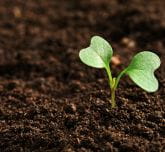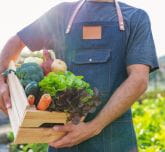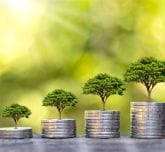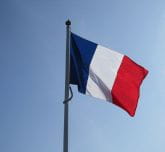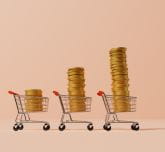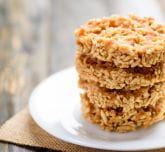The worldwide organic and wellness market
Following decades of using industrial techniques and phytosanitary products, agriculture and the food industry are slowly but surely turning to organic. The trend is as yet in its early stages, since the vast majority of cultivated land is not yet organically certified. In 2022, only nearly 2% of the worldwide utilised agricultural area, equating to 76 million hectares, was certified as organic or in the process of converting to organic, according to Agence Bio.
Aware of the benefits of organic products to their health and the environment, consumers all over the world are increasingly adopting organic products. Between 2021 and 2022, the worldwide organic market grew by 10% in value, and forecasts point to a 75% rise to 2026 (Statista). Global sales in 2022 are estimated at $12,070 billion.
As the organic market is relatively young and growing fast, there are many innovations out there: new products, new manufacturing processes, etc. An array of opportunities awaits, and there is no shortage of ideas among the sector’s professionals. In France - the country that launches the largest quantity of new organic products in the world - one in five new food products (22%) is an organic product. Germany is in second place, followed by Spain, with, respectively, 20% and 19% of new food products being organic, according to a report by the consultancy Mintel.
All these innovations often lead to new and significant trends in the food market. These include examples such as gluten-free, pesticide free, vegan, locally sourced, non-meat proteins or the concept of “blend it yourself” bringing together healthy smoothies, detox juices, etc.
However, the lion’s share of the market belongs to North America and Europe: 90% of organic consumption happens in these regions. The USA tops the list of the biggest organic consumers (chiefly fruit and vegetables) with 41% of the worldwide market and turnover estimated at $49 billion in 2021. Next on the list are Germany (11%), France (7%), China (6%) and Canada, Italy and Switzerland, all level on 3%.
Looking at per capita consumption of organic products, the top three countries change: Switzerland comes first, followed by Denmark and then Luxembourg.
The Asian market is developing at a fair pace, with 15% growth in 2022, and the biggest market is China, which has seen a sharp increase in demand for organic food products over the last 10 to 15 years (Statista). Japan, India, South Korea and Taiwan are other sizeable markets for the organic food industry.
In Latin America, organic remains marginal and a large proportion of products are imported. Nevertheless, organic is also growing here too. In Brazil, the leading South American market for organic, one in three inhabitants said they consumed organic products more than eight times per month in 2023. And the trend is growing, as it is in neighbouring countries such as Bolivia, Argentina or Uruguay.
The consumption of organic products is also low in Africa, with the majority of organic products earmarked for export. The number of organic food producers increased by a factor of 91 between 2000 and 2020, rising from 9,000 to 850,500. South Africa is the African country that consumes the most organic products. Other markets are also developing, in Egypt and in Kenya for example, and in Western Africa.
In parallel with organic products, “well-being” focused products are also developing strongly. These are products that are good for consumers’ health and tailored to individuals’ specific needs. These include health food and dietary supplements, superfood, with a reputation for nutritional benefits, and also gluten-free or lactose-free products, etc.
Organic and well-being: strong trends in France
As indicated above, France is one of the world’s leading consumers of organic products, with an organic market worth 13 billion euros in 2022. Although France remains Europe's second biggest consumer, and the country with the most hectares dedicated to organic farming on the continent (11% of agricultural land in 2022), the market has been in decline since the pandemic. In 2022, the organic market saw a decline in French household consumption of -5.1%, excluding inflation.
This downward trend, which is specific to France, can be explained by a general decline in home-based household food consumption. Inflation on food products, standing at 6.8% in 2022, is putting a strain on French people's purchasing power, forcing them to spend more and consume less. It should be noted, however, that organic products are less affected than others by inflation (4% in 2022).
In terms of the breakdown of organic product purchases in France in 2021, consumers primarily purchase sweet grocery products (16.5%), followed by fruit and vegetables (15.9%) and, in third place, dairy products and eggs / savoury grocery products (14.8%).
Organic and wellness at SIAL Paris
Innovative, dynamic and growing fast all over the world, the organic and well-being market is an essential part of SIAL Paris. In 2022, the event brought together 180 professionals within a sector entirely dedicated to natural and healthy products. A special “alternative food” feature was also organised for the occasion.
Among the “organic and well-being” exhibitors at SIAL 2022, three quarters of them were international firms such as the British company English Tea Shop, the Dutch company Tradin Organic, the American Biotech and the Australian Sanmik Foods.
Other sectors presented at SIAL
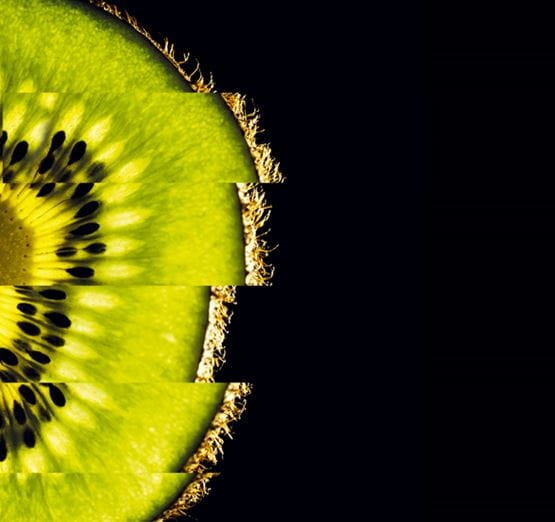
INSPIRING FOOD BUSINESS WORLDWIDE
- Food & Drinks Malaysia - Kuala Lumpur
- SIAL Canada - Montreal
- SIAL Canada - Toronto
- SIAL Paris - Paris
- SIAL in China - Shanghai
- SIAL in China - Shenzhen
- SIAL in India - New Delhi
- SIAL Interfood - Jakarta
- TuttoPizza - Shanghai
- TuttoPizza - Napoli
- Gourmet Selection - Paris
- Cheese & Dairy products show - Paris
- Djazagro - Algiers


